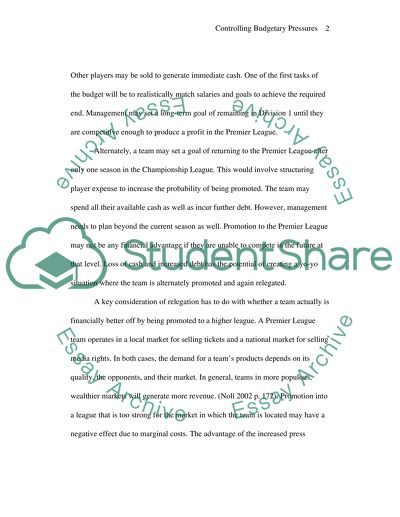Cite this document
(“Controlling Budgetary Pressures in Football Essay”, n.d.)
Controlling Budgetary Pressures in Football Essay. Retrieved from https://studentshare.org/miscellaneous/1503235-controlling-budgetary-pressures-in-football
Controlling Budgetary Pressures in Football Essay. Retrieved from https://studentshare.org/miscellaneous/1503235-controlling-budgetary-pressures-in-football
(Controlling Budgetary Pressures in Football Essay)
Controlling Budgetary Pressures in Football Essay. https://studentshare.org/miscellaneous/1503235-controlling-budgetary-pressures-in-football.
Controlling Budgetary Pressures in Football Essay. https://studentshare.org/miscellaneous/1503235-controlling-budgetary-pressures-in-football.
“Controlling Budgetary Pressures in Football Essay”, n.d. https://studentshare.org/miscellaneous/1503235-controlling-budgetary-pressures-in-football.


